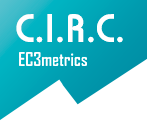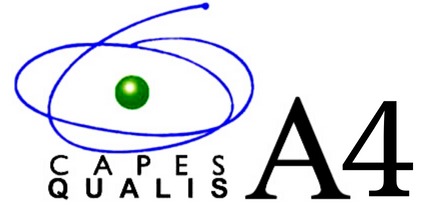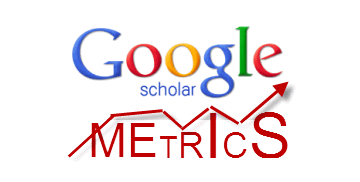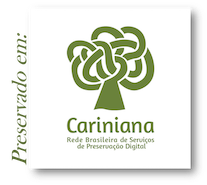Editorial Code of Conduct
Caput. The rules of Ágora's editorial code of conduct follow the recommendations of COPE, which has no responsibility for the standards adopted or the implementation of the regulations. The editorial board of Revista Ágora adopts the principles published by COPE as a reference for its own publication policy:
"Our members are primarily editors, but also publishers, universities and research institutes, and related organisations and individuals involved in publication ethics"(here).
Revista Ágora affirms, by following COPE recommendations, its commitment to ethics and the quality of its publications.
Art. 1st. The Ágora's organizational structure is composed of:
1. Editorial Board is composed of one editor-in-chief, one deputy editor-in-chief, one executive editor (in case the editor or deputy editor-in-chief does not belong to the Ufes), one review editor, one paper editor, one dossier editor, one communication editor, and other advisors chosen from several national and international teaching and research institutions.
2. Advisory Board
3. Editorial Assistant
4. Communication assistant
5. Sector of Good Publication Practices of the Central Library of Ufes
Art. 2nd. The Editors and Deputy Editors in Chief are chosen by the academic collegiate of the Graduate Program in History of the Federal University of Espírito Santo for a three-year term, with the possibility of total or partial reappointment of its members.
Art. 3rd. In case the Editors and Deputy Editors in Chief do not belong to Ufes' staff, an Executive Editor with this profile will be appointed among the members of the Board for the same three-year term of office, with the possibility of reappointment.
Sole Paragraph. In case of need for an Executive Editor, he must answer all academic and administrative issues of the journal before the institution headquarters.
Art. 4th. All Editors will be responsible for:
- deliberating administrative aspects of the journal production.
consulting the Editorial Board in all decisions involving the academic quality of the journal. - proposing changes in the journal's organization to the Editorial Board.
searching for financial support for the publication of the Journal. - the Editors' decisions will be decided by electronic or face-to-face consultation motivated by any of its members.
- decisions must be consensual so that members seek to make friendly and conciliatory choices.
- at the editors' discretion, serious decisions can be voted on and the decision by the majority is admitted, without the right to abstention.
proposals will be considered electronically via the address revistaagoraufes@ufes.br. - synchronic meetings (with all members meeting at the same time) will be an exception and will only occur in serious situations.
Art. 5th. The Editorial Board will be composed of national and foreign professors and/or researchers of great relevance to the theme of the Journal and the partner institutions in its realization. It will be up:
- ensure the permanence and regularity of the journal’s publication, as well as its quality.
- approve the standards for publication.
- appoint, together with the executive editors, referees for works received for publication.
- deliberate on reforms to the magazine's editorial project.
- deliberate on the widening of its body, the accession of new institutional partners, and the election of Editors.
Art. 6th. The Advisory Board of the electronic journal Ágora has researchers of recognized merit in the area, both national and foreign. The invitation and eventual increase in the number of participants of the Advisory Board will be decided by the Editorial Board of the journal. The Advisory Board will be made:
- assist the Editorial Board in matters relating to maintaining the quality of the Ágora electronic magazine.
- issue opinions on works presented for publication.
Art. 7th. The Journal will have an Editorial Assistant on its staff, who will be responsible for:
- take charge of correspondence and other forms of contact relating to the interests of the journal. Replay by email: revistaagoraufes@gmail.com
- maintain secrecy about the forwarding of articles to the respective referees, among other decisions of the Executive Board on the forwarding of the originals.
- assist in the technical review of articles and preparation for publication, according to the journal's rules.
Art. 8th. The Journal will have a Communication Assistant responsible for:
- create and maintain the magazine's communication channels with its readership.
- carry out all the scientific dissemination of the Journal in digital media and Social Networks.
Art. 9th. Duties of the Editor-in-Chief
- Publication decision: The journal editor is responsible for deciding which of the articles submitted to the journal should be published. The editor is guided by the policies of the magazine's editorial board and in strict compliance with legal requirements regarding defamation, copyright infringement and plagiarism. The editor may consult the editorial board or contributors when making decisions.
- Fair Rules: The editor must evaluate manuscripts for their intellectual content without regard to the authors' race, sex, sexual orientation, religious belief, ethnic origin, nationality, or political philosophy.
- confidentiality: The editor and any editorial staff must not disclose any information about a submitted manuscript to anyone other than the author himself, reviewers, potential collaborators, other editorial advisors, and the editor, as applicable.
- disclosure and Conflicts of Interest: The editor must not use unpublished information in its own research without the express written consent of the author. The editor must refrain from evaluating manuscripts in which he has any conflict of interest resulting from competitive or collaborative relationships or any other type of relationship or connections with any of the authors, companies or (possibly) institutions that are linked/connected to the articles.
- participation and cooperation in investigations: The editor must take reasonable response measures when ethical complaints have been made in relation to a submitted manuscript or published article.
Art. 10. Duties of the Deputy Editor
- participation and cooperation in activities delegated by the Editor-in-Chief, including replacing him.
Art. 11. Duties of Reviewers
- Reviewers – are professionals in the field of knowledge within the scope of the journal, therefore, “peers” of the authors proposing articles, who assist the editor in making editorial decisions to evaluate submissions and propose modifications to enrich the article or similar.
- Choosing the reviewer – the Editor-in-Chief alone is responsible for the decision to choose the reviewer, whether it is suggested by the advisory board or the Deputy Editor-in-Chief.
- Punctuality: Any selected referee who does not feel qualified to evaluate the research reported in a manuscript or knows that its immediate review will be impossible must notify the editor and excuse themselves from the review process. Revista Ágora communicates with reviewers, giving them a deadline to accept the invitation or not. A negative response or lack of consent will result in an immediate invitation to another reviewer of the editor's choice.
- confidentiality: All manuscripts received for evaluation must be treated as confidential documents. They should not be shown or discussed with others. Any private or collective disclosure with mention of the manuscript, even if generically referred to the subject, sent to the reviewer is not permitted, which will lead to the definitive exclusion of the professional from the panel of reviewers at Revista Ágora with this behavior.
- standards of Objectivity: Comments must be conducted objectively, and reviewers must express their opinions clearly with supporting arguments. Opinions that are not polite to the person evaluated or that do not have a relevant contribution in rejecting all or part of the article will be disregarded.
- source Recognition: Peer reviewers must identify relevant published works that have not been cited by the authors. The reviewer should also draw the editor's attention to any substantial similarity or overlap between the manuscript in question and any other published document of which they have personal knowledge.
- disclosure and Conflicts of Interest: Privileged information or ideas obtained through peer review must be kept confidential and not used for personal gain. Reviewers should not consider manuscripts in which they have any conflict of interest resulting from competitive or collaborative relationships or any other type of relationship or connections with any of the authors, companies or (possibly) institutions that are linked/connected to the articles.
Art. 12. The Authors' duties are:
-
- Reporting Standards: Authors of original research reports must present an accurate account of the work performed, as well as an objective analysis of its significance. Underlying data must be presented accurately in the article. A document must contain sufficient detail and references to allow others to cite the work. Fraudulent or intentionally inaccurate statements constitute unethical behavior and are unacceptable to Revista Ágora.
- Originality and Plagiarism: Authors must guarantee that their works are completely original, and the use of work and/or words from other authors must be duly cited or rated according to Ágora Magazine's submission rules. Plagiarism in all its forms constitutes unethical publishing behavior and is unacceptable.
- Multiple, redundant, or competing publications: An author should not, in general, publish manuscripts describing essentially the same research in more than one journal or primary publication. If the research requires the publication of different subjects, the author must mention the situation in the article. Submitting the same manuscript to more than one journal simultaneously and/or publishing the same article in different journals constitutes unethical publishing behavior and is unacceptable.
- Recognition of Sources: Revista Ágora considers it essential to adequately recognize intellectual works in the field covered in the submitted article. Authors must consider academically influential publications in the proposed text in determining the subject discussed in the work. Information obtained privately or anonymously should not be used or reported without explicit, written permission from the source. Information obtained in the course of confidential services, such as referee manuscripts or grant applications, should not be used without the explicit, written authorization of the author of the work involved in those services.
- Article Authorship: Authorship should be limited to those who made a significant contribution to the conception, design, execution or interpretation of the reported study. All those who have made significant contributions must be listed as co-authors. Others who have participated in certain substantive aspects of the research project should also be recognized or listed as contributors. The author must ensure that all suitable and no inappropriate co-authors are included in the article, and that all co-authors have seen and approved the final version of the document and agreed to its submission for publication.
- Disclosure and Conflicts of Interest: All authors must disclose in their manuscripts any financial or substantive/material conflict of interest that could lead to influencing the results or interpretations in their manuscripts. All sources of financial support for the project must be disclosed.
- Fundamental Errors in Published Works: When an author discovers a significant error or inaccuracy in his or her own published work, it is the author's obligation to immediately notify the magazine editor or publishing house and cooperate with the editor to retract or correct the article.






















